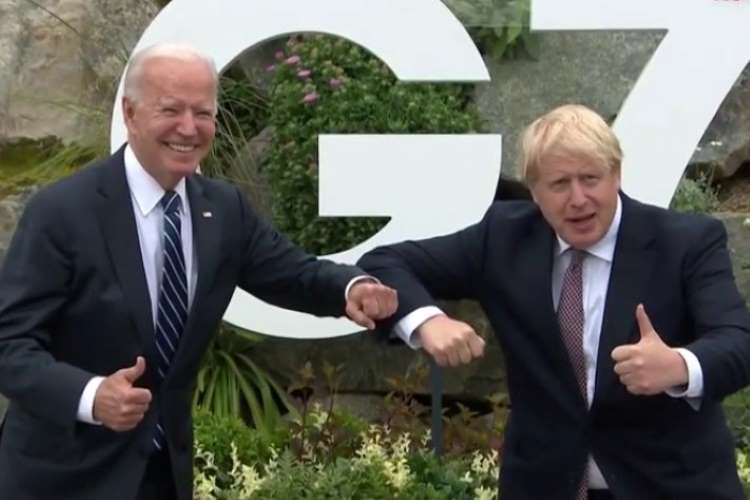
Towards a global minimum tax: As the leaders of G7 begin their summit meet in Cornwall, the most awaited outcome is a proposal that may make multinational corporations pay a minimum of 15% tax on their profits. Earlier this week, the finance ministers of the most advanced countries had agreed on the proposal put forward by the US administration.
Once the three-day summit of the leaders of the UK, Canada, France, Germany, Italy, Japan and the US that begins on Friday gives its approval to the global minimum tax, it will usher in a significant change in the way multinational corporations are taxed around the world.
An agreement at Cornwall will mean increased legitimacy for the proposal at the upcoming talks in Paris between 135 countries. The proposal will also be discussed at the meeting of the G20 finance ministers to be held in Venice in July.
READ I ‘India’s unemployment crisis unprecedented; government spending only way out.’
MNCs milking the current tax regime
An agreement piloted by President Joe Biden will ensure a global minimum tax rate of 15% on the income earned by multinationals from intangible assets such as trademarks, copyrights and patents. A global agreement would help cash-strapped national governments that need to rebuild their economies ravaged by the Covid-19 pandemic and the restrictions brought in to control its spread.
The existing global tax agreements allow some of the largest corporations in the world to get away with paying very small fractions of their profit as tax. Investigations by different national tax authorities on the tax practices followed some large technology companies such as Amazon, Apple, Facebook and Google ended with the same surprising conclusion. Though their tax bills are surprisingly low, they were not breaking any tax law. They were using double taxation avoidance treaties between nations to pay very little of their huge profits as tax.
Global companies avoid paying taxes by shifting a major part of their profits to no-tax or low-tax countries. This gave undue advantage to large corporations that became more competitive by paying less in tax despite huge sales and profits. Companies such as McDonalds and KFC would hardly pay any tax while local eateries end up paying heavy corporate taxes. The global minimum tax regime will create a level-playing field for small firms competing with large multinationals.
READ I Worst over; GDP growth will recover faster than forecasts in FY22: Arvind Virmani
It was becoming increasingly clear that this system cannot go on. The Covid-19 crisis that forced the governments to spend more brought in urgency needed for such a reform. The Biden administration seems to be so desperate that it is willing to share the additional revenues from this source with countries where these companies earn profits. While details of the deal are awaited, it is clear that large companies will need to part with part of their profits to countries where they operate.
The attempt by the Biden administration towards a global minimum tax on multinationals is welcomed by world nations that suffered from the unilateral actions and pronouncements of former US president Donald Trump. Many observers see this deal at G7 as an attempt to keep China out of the high table of trade negotiations, which may not succeed without the Asian giant’s cooperation.
The negotiations to stop tax evasion by multinational corporations started almost a decade ago after a number of scandals involving base erosion and profit shifting (BEPS). The negotiators from OECD nations wanted an international treaty to end tax evasion by big corporations. The G7 agreement on global minimum tax followed attempts by individual nations to introduce digital taxes on the tech giants. While the US administration opposed such moves, it was clear that it would have to agree to a negotiated deal.
READ I Telehealth services must strengthen privacy, cybersecurity practices
Pillars of global minimum tax regime
The US was in favour of a global minimum tax rate of 21%. It was brought down to 15% during the negotiations. France is in favour of a higher rate, which may find support from the UK government that is looking to increase corporate tax to 25% in the next two years.
While the idea of tax is fairly simple, different definitions of profit followed by different countries can create confusion for a global tax regime. For example, some countries have loose definition of profit under which capital investments are deducted from a company’s taxable income. The success of the new regime will depend on the clarity and consistency on how profit will be measured.
Also, the revenue sharing plan may leave out some of the largest companies in the world out of the tax net. The minimum tax plan requires a company to have a profit margin above 10%. This means income of some companies such as Amazon will not be taxable. Of course, there are discussions on how to tax some of the profitable businesses of Amazon separately from the rest of the company.
READ I Two to tango: A case for strengthening Indo-US trade, investment ties
Implications of minimum global tax
The proposed global minimum tax regime may work well for India, but could hurt low-tax jurisdictions and tax havens. India had cut corporate taxes on new manufacturing companies from 22% to 15% in September 2019. It later extended the tax cut to existing companies as well.
The US proposal for a global minimum tax will focus on the 100 largest corporates. This itself could raise huge amount of taxes for the US and host countries. It could also identify companies that make huge profits from global markets from intangible activities.
The proposed system could face failure initially because of the inherent complications of corporate taxation and conflicting interests of countries. However, this proposal for global minimum tax has made possible an evolution that could end abuse of tax havens. It is a good beginning, but the system can be made better through negotiations between the home countries, multinationals and the markets where they operate.
Anil Nair is Founder and Editor, Policy Circle.

